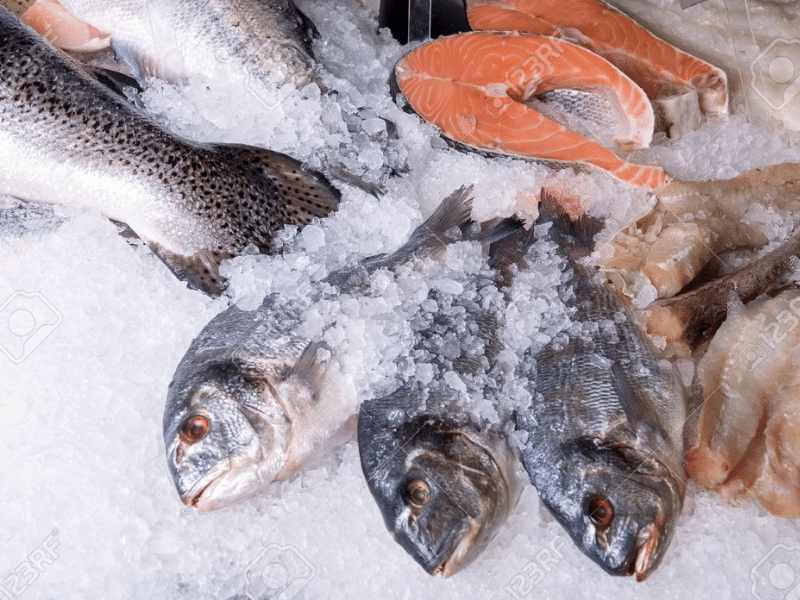
Chamberlains of London – Fresh or frozen seafood is a common debate for seafood lovers. Both options offer nutritional benefits, but they vary in taste, texture, and storage. Understanding these differences will help you make informed choices when buying seafood.
Fresh seafood is often considered superior in taste and texture. When caught and consumed quickly, it retains many of its essential nutrients. Fresh fish, for example, has higher levels of vitamin D, omega-3 fatty acids, and protein compared to processed seafood. Omega-3s are particularly important for heart health and brain function.
Moreover, fresh seafood typically has a firmer texture and a cleaner taste. These qualities make it a favorite in many recipes, especially when it comes to grilling, steaming, or pan-searing. Many consumers believe that the higher quality of fresh seafood justifies its higher price tag.
“Read about: The Nutrient Boost: How Seafood Supports Your Health”
Frozen seafood also provides excellent nutritional value. Freezing locks in many of the essential vitamins and minerals. If you freeze seafood right after it’s caught, it can maintain much of its nutritional value. The freezing process helps preserve omega-3 fatty acids, protein, and other nutrients. This makes frozen seafood a great option for those who want to keep a stock of seafood on hand for later use.
Frozen seafood is also more accessible and often more affordable than fresh seafood. Freezing extends the shelf life of seafood, allowing you to store it for longer periods. This convenience means that frozen seafood can be a cost-effective way to enjoy seafood at home without worrying about spoilage.
One key difference between fresh and frozen seafood is the texture. Fresh seafood tends to have a firmer, more delicate texture. When frozen, seafood may become a bit softer after thawing. However, if frozen seafood is handled and thawed correctly, it can still retain a great deal of its original flavor and texture.
For some dishes, frozen seafood might not be ideal, particularly those where texture is crucial. For instance, sushi and sashimi require the freshest possible seafood. But for cooked dishes, frozen seafood often works just as well, especially when seasoned and prepared with care.
One of the main benefits of frozen seafood is its long shelf life. While fresh seafood must be consumed quickly, frozen seafood can last for months in the freezer. This makes it a convenient option for people who do not have access to fresh seafood regularly.
Fresh seafood, on the other hand, has a short shelf life and must be stored properly to avoid spoilage. You need to consume it within a couple of days after purchasing. For those living in areas where fresh seafood isn’t easily available, frozen seafood offers a practical solution.
“Read more: Innovative Desserts: The Cutting-Edge Sweets You Need to Try”
Frozen seafood is generally more affordable than fresh seafood. Freezing helps lower the overall cost of seafood because it reduces waste and allows seafood to be transported more easily over long distances. In some cases, frozen seafood can be just as fresh as its fresh counterpart if it’s frozen at the peak of freshness.
Fresh seafood, while higher in cost, offers a unique experience for food lovers who want the best quality. The expense often comes with the freshness and local sourcing of the product. However, frozen seafood provides the same nutritional benefits at a more affordable price.
Sustainability is an important factor to consider when choosing between fresh and frozen seafood. Overfishing and unsustainable fishing practices have raised concerns about the environmental impact of seafood production. While fresh seafood can sometimes come from less sustainable sources, frozen seafood often undergoes stricter regulations to ensure sustainability.
Many frozen seafood brands are now certified by organizations like the Marine Stewardship Council (MSC). These certifications indicate that the seafood was sourced sustainably. Therefore, choosing frozen seafood with these certifications can help support sustainable fishing practices.
Both fresh and frozen seafood have their advantages. Fresh seafood offers superior taste and texture, while frozen seafood provides convenience, cost savings, and a longer shelf life. When considering nutritional benefits, both options provide essential vitamins, minerals, and omega-3s. However, the choice depends on personal preferences, access, and budget.